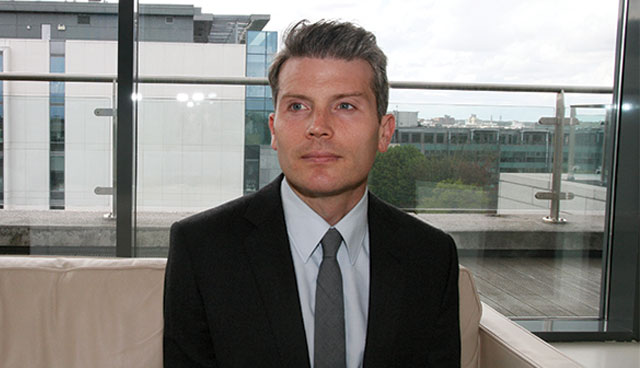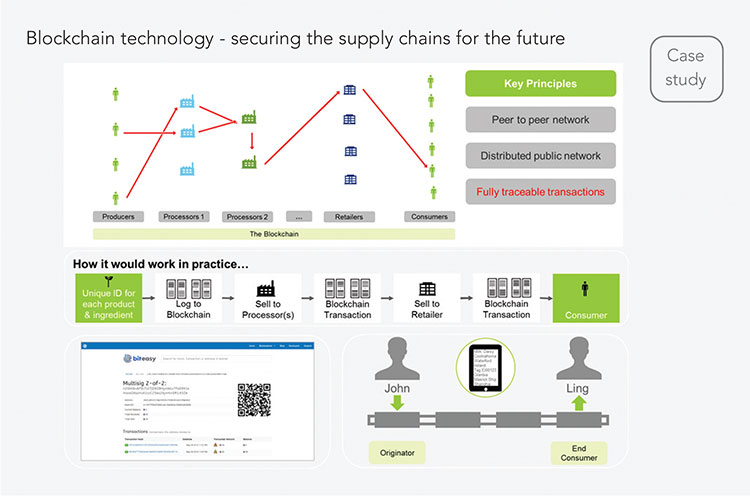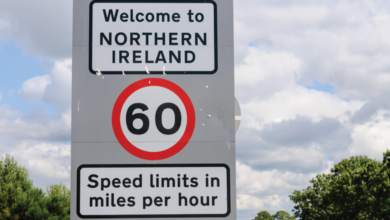Capitalising on global dairy opportunities


Rising global dairy prices are bringing optimism back to the Irish dairy sector after a number of difficult years. Slowing demand from China, Russia’s trade embargo and the removal of EU milk quotas had resulted in a period of excess supply and low prices. In the last 12 months, the prospect of Brexit has led to further uncertainty and disruption.
While Brexit continues to be a key concern, we remain positive on the prospects for the global dairy sector and for Ireland’s place within that sector. That positivity is also shared by the Irish Government, as demonstrated by Food Wise 2025, and initiatives such as Origin Green. Long-term fundamental trends such as rising populations and changing diets continue to increase demand for dairy.
As incomes rise and nations become increasingly urbanised, individuals tend to receive more of their calories from proteins (including dairy) as opposed to basic carbohydrates (mostly grains). Global demand for dairy is expected to increase by 2.5 per cent per annum to 2020, largely driven by increasing urbanisation and rising incomes in emerging markets.
These favourable long-term consumer trends, combined with a range of emerging technologies, provide opportunities at all stages of the value chain. This article looks at a number of these opportunities at the producer, processor and retailer levels. It then outlines some of the overarching themes at work in the global food industry, and looks at how the dairy sector needs to adapt to take advantage of them.
Producers
At the producer level, emerging technologies and the ‘datafication’ of agriculture are providing farmers with the potential to obtain quantifiable information to continuously measure and monitor farm operations and react accordingly. For example, relatively simple technologies to assist with grass and herd management are becoming more widespread, and may signal the beginning of a wider trend. Various smartphone data applications, robotics (such as automated milking parlours), drones, micro-sensor technology and satellite systems are all likely to become more commonplace on the farms of the future.
Farmers who can complement these technologies with suitable operational and commercial practices could see profitability increase significantly. These technologies can also help farmers expand production in a profitable and sustainable manner which is particularly important in the volatile post-EU quota era.
Processors
Evolving consumer trends such as the demand for healthy and ‘clean label’ products, increased demand for ‘functional foods’ and the growth in protein consumption will drive innovation in the sector. While having strong technological capabilities is key to taking advantage of these trends, it is not sufficient. The ability to identify and exploit consumer insights from local markets is also vital in generating increased value for consumers and higher margin products for producers.
These products must also be delivered in a safe and secure manner. The dairy sector has seen a number of scandals related to food safety in recent times, and firms must take measures to ensure that their supply chains are as secure as possible in order to maintain their customers’ trust. New technologies such as blockchain, a distributed and publicly-accessible ‘ledger’ which records transactions in a tamper and revision-proof way, could potentially be used to track what goes into a product and who handles it along the way.
Retailers
A number of trends such as the growth of a healthy snacking culture, higher food consumption outside of the home and the growth of online and mobile shopping are changing the way food is being bought and consumed. Dairy is at the forefront of these trends as a convenient and relatively cheap source of protein.
Retailers must adapt to these trends through better use of technology and data to target customers with tailored offers and ensure that they can match supply and demand in smaller stores through better inventory management.

Changing consumer demand patterns
It is clear that changing consumer demand patterns are impacting food production and consumption at all stages of the value chain. A recent Deloitte report entitled ‘Capitalizing on the Shifting Consumer Food Value Equation’ has identified a number of new value drivers for consumers when making their food choices. The ‘traditional’ value drivers of price, taste and convenience have been supplemented by a number of ‘evolving’ drivers, described below.
- Health and wellness. This is the most important and complex of the value drivers. Consumers’ considerations are broad and tend to vary at the category level, with attributes ranging from nutritional content, to organic production, all-natural ingredients and fewer artificial ingredients.
- Safety. This is considered both in the short term (e.g. toxin free) and long term (e.g. no carcinogens). It has significant interplay with health and wellness, having attributes such as fewer ingredients and better labelling as well as the absence of allergens.
- Social impact. Social impact encompasses attributes such as local sourcing, sustainability, animal welfare, and fair treatment of employees. It appears to have a low impact on buying decisions for most consumers, however there is a small but very vocal minority for whom it is a significant issue and whose voices can potentially sway public opinion.
- Experience. Experience includes retail store layout and services, channel innovation, brand interaction, and personalised engagement spanning pre, during, and post-purchase.
- Overarching each of these drivers is the desire for transparency. This requires product attributes such as clear labelling, certification by trusted third parties, and company attributes like access and trust.
The report surveyed 5,000 US consumers, roughly half of whom said their purchase decisions are significantly influenced by these evolving drivers. What is more, these findings were pervasive across regions, age and income groups.
Interestingly, those who expressed a preference for the evolving drivers exhibited a lack of trust in large, national food and beverage brands across a range of factors such as food safety, nutrition and value for money. This lack of trust may be contributing to lower sales growth at larger food manufacturers (in the U.S. from 2009 to 2013 the 25 biggest manufacturers achieved 1.0 percent annual growth, compared with 4.9 percent and 4.0 percent for smaller brands and private brand manufacturers, respectively).
Taking advantage of the opportunity
The research therefore suggests that purchase decisions are increasingly based on ‘product plus’ factors, such as specific ingredients, how the product was made, where it was made, corporate values of the manufacturer and retailer, etc. This requires that firms play close attention to all aspects of food production from farm to fork. Health and wellness will certainly be a key consideration for innovation and new product development, but firms must think beyond individual product attributes to factors such as how the product is produced, the nature of the supply chain, etc.
Firms must also be able to communicate this holistic approach to consumers and influence the discourse around their products. Rising device ownership, well developed social networks and the large quantity of information at consumers’ fingertips means that consumers are more empowered than ever before. While consumers always had the power to vote with their wallets, they now have more power than ever to influence what other consumers buy. Dairy companies will need to adapt to this trend by providing consumers with relevant information in an open and transparent manner.
Firms that succeed in this new environment will be those that can meet multiple value drivers discussed above and adapt a ‘product plus’ mind-set. It will require an integrated and well thought out approach to all aspects of food production, processing and retailing. It will also require a genuine dialogue with a more empowered consumer which can serve to build trust and grow brands.

Performance of Irish firms
Irish firms have been at the forefront of the changing dairy sector in recent years, from SMEs exploiting opportunities in niche segments to Irish based co-ops and multi-nationals developing high value add products for international markets. What the most successful of these companies have in common is a relentless focus on the consumer, and a recognition of the changing consumer dynamics discussed above. This consumer insight has been used to turn dairy proteins into a range of successful high value products in segments such sports nutrition, infant nutrition and ‘food on the go’.
The Irish Government has also recognised the importance of a more health and environmentally conscious consumer through the Origin Green programme. Launched by Bord Bia in 2012, it is the only sustainability programme to operate at a national level and involves food producers, private enterprise and government. At a producer level, participating farms are measured on factors such as carbon footprint, water and energy usage and biodiversity. At a processor level, manufacturers are assessed on targets in the areas of raw material sourcing, the manufacturing process and social sustainability.
The initiative plays well with the image of Ireland as a green and sustainable source of dairy, and will appeal to consumers for whom health and wellness and environmental issues are a major concern. Looking ahead, it is intriguing to think about how some of the technological advances discussed in this report could play into national level initiatives such as this. For example, could blockchain form the basis of the first national level food traceability and assurance programme?
Adapting at each stage of the value chain
In summary, meeting both traditional and evolving demands in a dairy context will require producers, processors and retailers to provide consumers with nutritious, safe, convenient and value for money options. Furthermore, actors at all stages of the value chain will need to work hard to maintain the trust of a more demanding and empowered consumer.
In an Irish context, we see many opportunities for domestic businesses. The key will be:
- building on our existing strengths, including high quality and value add ingredients in the sports nutrition and infant nutrition sectors;
- further investing in developing new products to meet evolving consumer requirements for health, nutrition and quality;
- scaling and integrating our supply chains while ensuring that the highest safety standards are maintained (emerging technologies can play a key role here); and
- investing in technology including digital, analytics and internet of things to connect with customers, generate insight and ensure that the highest quality standards are maintained.
Focus on blockchain
Blockchain is a distributed publicly-accessible ‘ledger’ which records transactions in a tamper and revision-proof way that is public to all. The ledger records a transaction, when it happened and that it happened correctly, without exposing any confidential details about the subject or the parties’ involved. Originally created as a means to manage the virtual currency bitcoin, it is now being adapted for a range of different uses, and has potential to greatly enhance food traceability.
As a shared, secure record of exchange, blockchain could potentially be used to track what goes into a product and who handles it along the way. Each ingredient or product component would have a unique ID number, and be traceable at each stage of the supply chain, even as ingredients from different sources are added and the product is developed. As the blockchain database is publicly accessible, the process would be completely transparent and allow numerous people to carry out verifications.
Furthermore, the internet of things could potentially play a role here. Internet connected equipment such as trucks and storage coolers could monitor which objects they are housing and tag those objects with relevant environmental conditions like temperature or location, providing assurance that a product is safely handled through the entirety of its journey.
This is an area which is currently in the early stages of development, and has yet to be commercialised. However, the core technology is there. Indeed, Deloitte Ireland recently developed a ‘Foodchain’ prototype which could be capable of tracking all ingredients in a particular product along the length of the supply chain. Such technology could potentially allow a consumer in China to pick up a product, scan an RFID tag on a mobile app and have the ability to see where each ingredient in that product came from. This would provide unparalleled ‘farm to fork’ visibility and give consumers significant peace of mind.
Michael McMahon
Senior Manager, Consulting, Deloitte
Email: micmcmahon@deloitte.ie
Tel: +353 1 417 3631
Web: www.deloitte.ie






